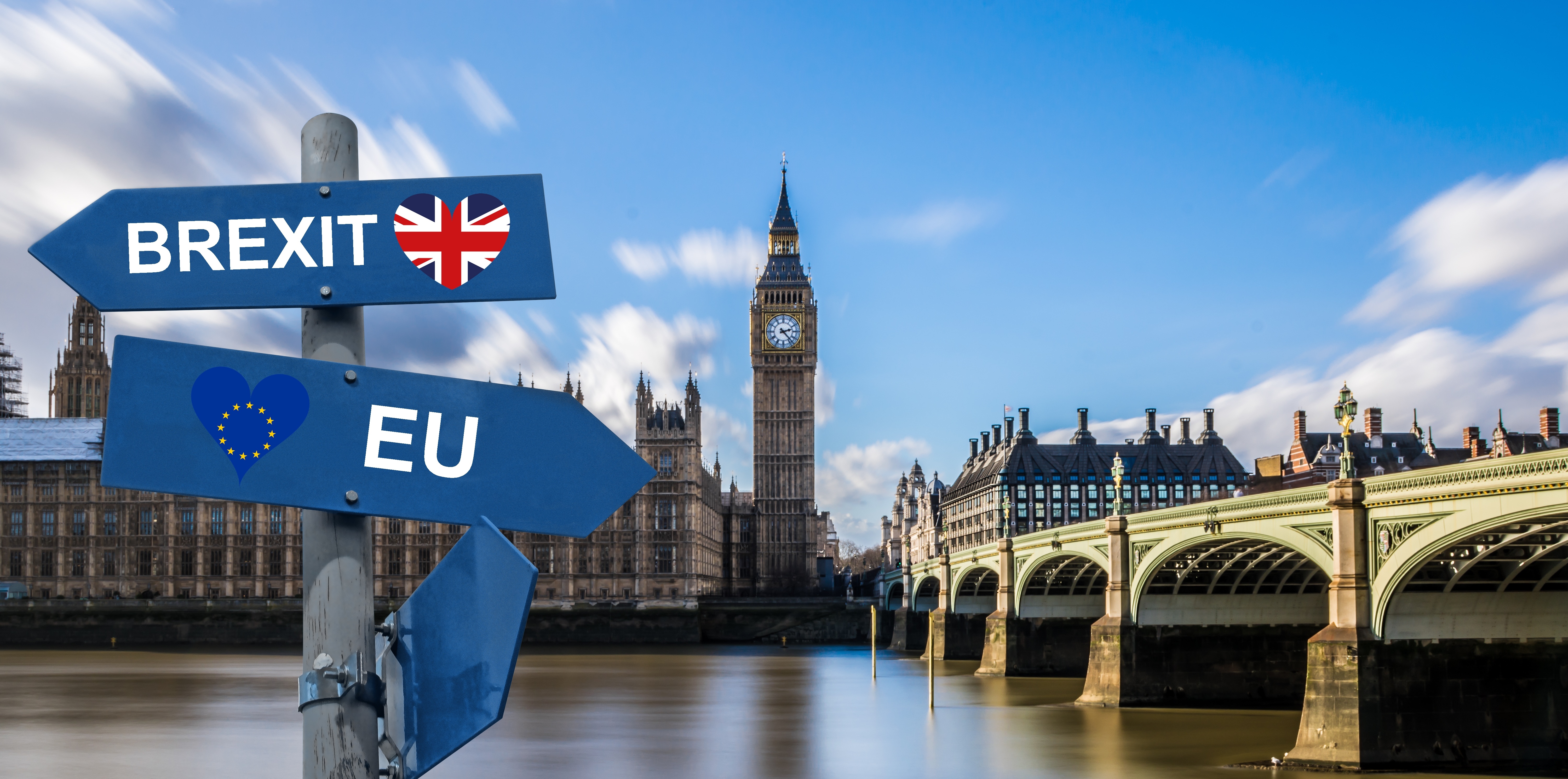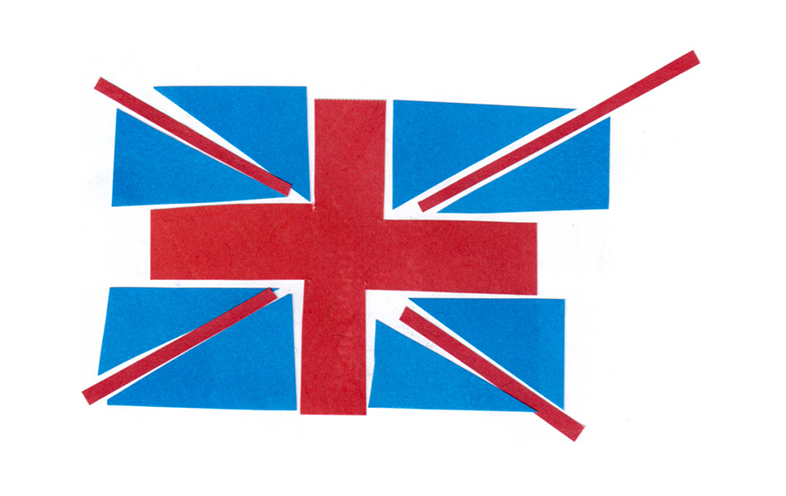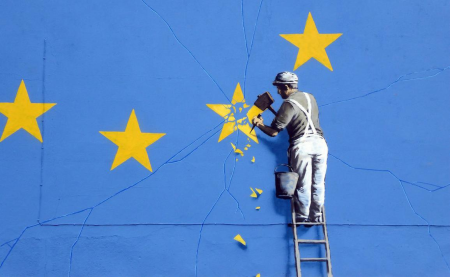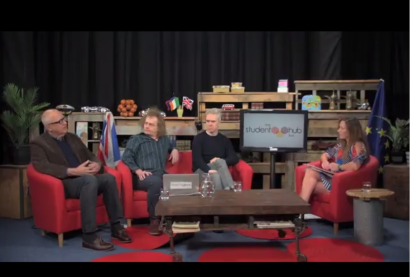Where we are now with Brexit
Over the past year or so friends (often from other countries) have been asking me to explain Brexit. “You are an economist” they say, expecting I have some formulaic answer that will at once make all things clear. Alas no! Would that I could, but I don’t think that anyone really can. What I can do (and try in few words to explain) is to make some suggestions about why I think this has all happened. And in a complex issue like this perhaps half a loaf is better than no bread. So when Merrill Ring asked me to explain Brexit to an American audience, I decided to give it a go.
The British Conservative Party (the Tories) have been split down the middle over Europe for nearly half a century. Perhaps at the time of joining the European Economic Community (EEC) in 1973 there were more Europhiles than Europhobes in the parliamentary party but this did not last; it came to a head initially through Margaret Thatcher with the saga of the Maastricht treaty and the subsequent flight from the exchange rate mechanism in 1992. From then on it has been a running sore and a significant cause of the rise of the Labour Party under Tony Blair and Gordon Brown over the 13 years from 1997 to 2010.
Clinging onto the past
Why this should have happened is unclear. Some have argued that it may be connected to the loss of empire and a feeling England has lost its rightful place in the world. Vague memories of bygone days when Britain ruled the economic world through free trade and gunboats became increasingly contrasted with resentment over European rule by the Eurocrats in Brussels.
Others have focused more on the related belief that the share of the State in national economic activity has become too great; and by extension therefore the European Union (EU) has become part of an increasing problem whereby decisions are made by unelected people. A vision of potential trade deals throughout the world is contrasted with stifling control by preventative bureaucrats in Brussels.
Yet others argue that the European project itself has been mishandled by powerful vested interests on the part of elites across the whole of the EU and that increasingly these interests have been propagated by similar interests within the European bureaucracy itself. What began as a response to a dreadful 19th and 20th century history of wars, pogroms and massive exploitation of man by man, has become a distorted end in itself.
My own view is while each of these views (and others) has been present the core at the bottom is economic; increasingly large swathes of populations have become disenfranchised despite improved economic growth (as conventionally measured); the result is a search for those responsible for what is seen as lack of fairness, a small section of society becoming fabulously rich while most of the rest of us are constrained economically.
What brought things to a head were first the banking crisis that hit in 2007/8 and second an apparent increase in immigration often from poorer parts of Europe (including new members of the EU) but also from countries in Africa, South Asia and the Middle East (sometimes illegally). The two are linked but have not been perceived as such by the bulk of disenfranchised citizens. These latter have been aware only of static or falling real incomes, shortages of adequate housing, associated unemployment problems, the crushing of effective public services especially in health and social care, all combined with increasingly apparent levels of inequality. Moreover such a disproportion has been felt more keenly in regions outside the SE of England.
Playing the blame game
When the Conservative Party took power in 2010 (helped by successfully putting the blame entirely on the Party in power, Labour, during what was in reality an international banker-led crash) it inaugurated a macroeconomic policy of austerity, arguing that the problem was mainly down to unsustainable levels of public debt. This has taken the form of a squeeze on public services (involving draconian wage restraint) which is still with us ten years on from the crisis date. Meanwhile real national output and income has barely moved, investment has been at a virtual standstill, manufacturing has continued to decline and UK productivity is now at the lowest level in Western Europe.
This then has been the context within which Brexit has taken place. The party under David Cameron made what for many people, was a rash promise before the 2016 election. Since the perceived problem by then was seen to be membership of the EU he committed to a referendum on leaving the EU if his party won (which it did, just!). This was precisely the moment that the Brexiteers had been waiting for. Get out of Europe, put a final stop to immigration through strict border controls, get rid of the European Court of Justice, abandon ship and set out like the buccaneers of yesteryear to create new trade deals and rule the waves.
Alas! Things haven’t gone to plan. Since he had effectively “lost” the referendum Cameron resigned to be replaced by the then home secretary, Theresa May (not the brightest pea in the pod, but ruthlessly ambitious and determined). Setting out her stall for a clean break with the EU and misjudging the opinion polls she called an election which she effectively lost since her majority was cut dramatically to a few MPs. The only means of staying in power was to buy in the votes of the Democratic Unionist Party [DUP] in Ulster to the tune of £1.5 billion, which gave a small but workable majority.
She thought! Very quickly, however, the chickens began coming home to roost. Since the UK is committed to its share of European expenditures till 2020 there began disputes about how much the buy-out would be (settled last December for around £40 Billion - a ball park figure). Since much of what remains of British manufacturing industry is closely tied to supply chains across the EU, obstacles like new tariffs and tight regulations have forced the government into at least considering some form of customs union. Debates about this are on–going; more about this below.
Running the risk of violence
But the real sticking point is about the establishment of a customs border in Ulster (Northern Ireland). The price of DUP alliance was not just £1.5 billion. It was also about Ulster continuing to remain an integral part of the UK. In turn this means a customs border with Ireland in the south, which remains of course part of the EU. But such a border (besides being a dramatic restraint on normal commerce) risks a return to the half century of violence endemic to the region, violence only recently curtailed by the Good Friday agreement signed in 1998.
The troubles have deep roots, going back to English colonisation of Ireland and associated religious conflicts in the 17th century. These conflicts are still simmering below the surface and there is widespread worry that it would not take much to resurrect them (like a hard border for instance).
Two solutions to the border issue have been suggested. One involves having a soft border arrangement whereby commodity flows are monitored by new technology (not yet invented, however) and goodwill practices (to be?) encouraged. The other is for the UK itself to collect import tariffs on goods from non-EU countries on behalf of the EU and return appropriate sums to the EU where the commodities in question are designed ultimately for EU countries. Needless to say both “solutions” are seriously questioned by all stakeholders, especially business. There are of course many other points of dispute, like for example, the future viability of the UK financial sector, membership of key cross EU institutions relating to defence, education and health. But the battle lines are becoming clear on the essentials outlined above.
So this is apparently where we are now. The UK Conservative party is still apparently split down the middle on many of the issues concerning separation from the EU. At least it appears so from what we read about divisions within the Cabinet; at times these appear distinctly stormy. Many decisions have been decisively rejected by the UK second chamber (the House of Lords), and there are threats that returning decisions to the House of Commons could well lead to the fall of the government or at least force the resignation of the prime minister (May).
Notice that all this is happening before any meetings to settle arrangements with the EC (European Commission); these are due to take place in June. Already their chief negotiators are showing a marked scepticism about many of the proposed “solutions” but we shall have to wait and see what transpires. So to paraphrase Oliver Hardy once more, what has brought about “this fine mess”?
Why has all this happened?
What follows is my own personal view. It is that the issue of immigration and its association with the EU (itself rather a flawed enterprise, it is feared) has become a scapegoat for a deeper underlying anger at the impact of inequality affecting large swathes of mainly English society. Notice, by the way, that Scotland did not vote to leave the EU. And this scapegoating has been given ideological support by the bulk of my professional peers in economics. The 2016 referendum was the chance to stick two fingers in the face of elites.
Of course immigration had become a real problem all over Europe and sensible controls were warranted, but the issue of immigration has become a focus for something much deeper, a hollowing out of living standards that affects many regions and increasingly significant proportions of all classes (including the middle class) in the UK as a whole.
The world has suffered two major financial melt downs. The first followed on from the US stock market crash in 1929. What then took place has been extensively documented; it led to dramatic falls in incomes and employment; it led also to a huge contraction in global trade as nations attempted to protect themselves through beggar thy neighbour trade measures that became at one and the same time progressively stricter and less effective (in fact they made things much worse).
Mistakes made and costly consquences
The response of the economics profession was dire. For them the problem was that like a household living beyond its means, countries should tighten their belts, consume less and save more.
To encourage that to happen national treasuries (led by the USA) advocated what is now known as austerity. Interest rates were hiked to prohibitive levels, public spending massively cut with the results we all now know about. Roosevelt attempted to remedy matters through his “New Deal” but this ran against the ruling zeitgeist and was fiercely resisted; it took the publication of Keynes’ General Theory in 1936 before the folly of the economists became clearly apparent. But the profession remained in denial and it took the second World War to begin to resurrect economic systems, albeit at enormous human cost.
Keynes pointed out that treating the economy of a nation as equivalent to that of a household is entirely misguided; he named it the “fallacy of composition”. Constraining incomes and expenditure merely diminishes national aggregate demand, thereby discouraging private investment (since market expectations become poorer).
Falling investment brings about fewer jobs and diminishing incomes in an endless cycle of impoverishment that is only preventable by government action. But such action becomes harder to achieve as incomes fall; aggregate tax revenues diminish and things continued to spiral down.
Many countries fell into a low level equilibrium trap of abject misery for most of its citizens. Austerity clearly did not work then; nor is it working now, though the contextual circumstances are different (including levels of private debt which have reached unprecedented levels in many countries such as the UK, USA, Japan and China). The 2007/2008 crash has been our equivalent present day misfortune. So why haven’t the lessons of Keynes been learned?
Looking after vested interests
The answer is political of course since powerful vested interests thereby benefit (such as, for example, banks, large corporations and those who benefit from stock market rises); but it is also ideological in the sense that it is given credence by flawed economic theory (the kind that is taught to future treasury officials in universities). By the late 1920s the economic profession had constructed a theory of economic behaviour which they felt put things on a par with the Newtonian dynamics that explained much of observed physical systems before Einstein and quantum theory.
The core of the system is the notion of competitive pricing of commodities and productive resources (labour and capital), leading towards a general equilibrium whereby output (renamed welfare) is maximised using all available inputs at any point in time. Where competition does not prevail (in practice all the time, of course) this is held to be due to market imperfections. These include institutional factors such as government activity, monopoly power in production, trades unions and other vested interests that prevent market forces being given full reign.
The associated policy implications are obvious. Where it all falls down of course, is that it has nothing to say about income distribution (who benefits and who loses), non-tradable commodities (environmental goods, for example), economic activity within the home (housework mainly), where experiential values and market values differ, how economic systems change through time (since general equilibria could never exist in practice), where money and credit fit into the picture (they don’t appear in the full form of the standard model and only operate through the monetary policy of central banks designed to keep the whole show on the road), and in a whole load of other circumstances that are too many to mention.
As a scientific theory it also fails miserably since unlike Newton’s Laws its predictions cannot be tested empirically [as would be the case for physical system hypotheses] because the degrees of freedom are massive. Economic systems evolve often at high speeds and their structures are constantly reconfigured.
However, provided you make a whole range of very strong assumptions (such as the abolition of time, for example) you can dress up the system in simple mathematics and thereby give apparent verisimilitude to a model that has little basis in reality but has an academic core of a sort. In a real sense the whole thing smacks of the scholastic disputes that occurred in the 17th century regarding the earth going round the sun.
By 1929 the economics profession had consolidated this idea as its core basis and could not stomach Keynes’ argument that even in its stylised form it could in no way guarantee full employment. On the contrary, Keynes said, economic systems are highly unstable normally and subject often to severe fluctuations. State intervention is essential to avoid great harm to citizens and this included importantly fiscal policies designed to maintain aggregate demand; even if there are public debt constraints this can be mitigated over time though the tax system.
And from then on, really until just before the second major crash in 2007/8, much time was spent on proving Keynes’ proposition, if not wrong, at least capable of manipulation so as to preserve the general equilibrium model in place. The associated policies of reduction of state activity in the public sector (including local councils), trade union legislation to minimise strikes, privatisation of public sector services and so on, continued under this kind of ideological banner. And austerity has continued to be used as the basis for public policy.
Nowadays we do not hear as much from the profession as we used to before the crash. Asides from a lack of consensus about the meltdown’s causation and the clunky nature of the ruling theory there is also growing evidence of expanding inequality of incomes and assets and regions to explain. For those living as house owners in the SE of England life may be good but they make up only a relatively small portion of the population as a whole.
A vicious circle resulting in Brexit
The French statistician Thomas Piketty and the US Nobel prize winner Joe Stiglitz provide incontrovertible evidence that things are not good for most people. Even claims about full employment are negated by the low wages and poor conditions that often characterise it. Zero hour contracts are just one example. In this way the issue of immigration has come to a head and Brexit has been the response.
So where do we go from here? What is the prognosis? My hope is that the general population will eventually realise that the wool has been pulled over their eyes comprehensively, that all austerity has done is to ensure the British economy has lost nearly 10 years of potential output and income, that social and economic conditions are suffering accordingly in so, so many ways.
Immigration issues are really only a relatively small part of the underlying problem. Indeed the British economy needs immigrants of all kinds to maintain economic activity across the board. We are already seeing signs of this especially in the health and agricultural sectors and it is likely to spread more widely.
Meanwhile our political leaders continue to try to square the circle through endless battles, especially at senior levels in the Cabinet. Most appear to have become embedded into positions they do not really understand. Things are fast evolving. We await forthcoming events with interest and more than a little trepidation.
This article was published in the journal 'Progressive Democracy', and the opinions expressed are those of the author and may not represent those of The Open University.





Rate and Review
Rate this article
Review this article
Log into OpenLearn to leave reviews and join in the conversation.
Article reviews